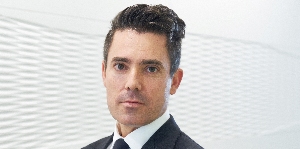30 Years in business
Why Asset Allocation and Advice beat everything else?
Wednesday, December 12th 2018, 4:11PM
by Michael Lang

Michael Lang, Chief Executive NZ Funds
Financial advice is much like other professional services; if clients put their mind to it they could probably do most of it themselves. Little of it is rocket science.
But just as we don’t want to spend our weekend doing the family’s tax returns, writing a will or establishing a trust, an increasing number of New Zealanders are embracing the use of a financial adviser to ensure they get the basics right.
So, if you have decided to make a living advising others what to do with their money, you will want to know the best way to grow your clients’ wealth, and then recommend that to as many clients as possible.
The good news is, in our view, the formula for success as a financial adviser is surprisingly simple.
What is also surprisingly simple is that experts around the world from Buffett to Bogle agree that it has little to do with active or passive, global or local, choice of manager or how much they charge; and everything to do with asset allocation and advice.
Here are the five most common discussions we have had with advisers over the years around asset allocation and the role of advice.
First, whether asset allocation explains 70%, 80% or close to 100% of investors’ returns over time. While there is some debate on the exact power of asset allocation, there is little to no debate that everything else from fees to manager alpha ranks far, far behind.
So, if you wish to maximise the returns your clients get over time, make sure you get their asset allocation right.
Second, getting their asset allocation right is also pretty simple. Unless your client is risk averse and/or vulnerable, or needs to access their capital over the short to medium term, then within the confines of KiwiSaver, investing in listed shares is the best long-term investment they can make.
It actually does not matter whether they choose New Zealand, Australian, or global shares (or all three) as they all have a similar long-term rate of return.
Third, encourage clients to save more. At between 5% and 6% (employer and employee contributions), New Zealand’s minimum statutory contribution rate to KiwiSaver is well below our global peers: the United States is saving 7%, the United Kingdom will be saving 9% from 2019, and Australians save 9.5% due to increase to a whopping 12% by 2025. As long as your client is not deeply indebted and has their mortgage repayments under control, there is little danger in encouraging them to save 1% more.
Clients can always take a savings holiday, reduce their savings, or under exceptional circumstances draw down on their funds in an emergency. But they can’t get back lost years of saving.
Fourth, help them stay the course. It might seem silly, but clients pay advisers to hold their hands. Advisers like to think clients use them because they have Bloomberg, can access thousands of funds or subscribe to manager research.
But most industry research is available online and almost all managers are directly accessible at a reasonable price. The thing clients value most, and are quite willing to pay for, is counsel.
Most New Zealanders know that volatility is the price to be paid for a higher expected return, but it is encouraging to hear a professional say it when the markets are down.
Fifth and finally, as clients age they need help unwinding their portfolios. At some point for all of us, the pendulum will swing from wanting to accumulate more to wanting peace, quiet, and a stress-free environment to enjoy the money we have saved.
Clients who have saved enough with which to retire may not want to put the decade or more they have in retirement at risk just to earn two or three percent more.
Because of this, high allocations to growth assets become as inappropriate for older clients as high allocations to cash are for young savers.
There are of course countless ways to refine the process, and layers of value that can be added over and above what is discussed here. But for professional financial advisers, whether they are AFAs or RFAs, getting these basic five things right is of tremendous help to clients, and to society as a whole as it can reduce the burden on taxpayers to fund New Zealanders’ retirements.
Most importantly of all, good advice improves the utility we extract from the incomes we earn.
Happy holidays to advisers and their clients everywhere.
Michael Lang is Chief Executive at NZ Funds. New Zealand Funds Management is the issuer of the NZ Funds KiwiSaver Scheme.
| « Knowledge still lacking on KiwiSaver | What contribution rate should I have in order to retire? » |
Special Offers
Comments from our readers
No comments yet
Sign In to add your comment
| Printable version | Email to a friend |


